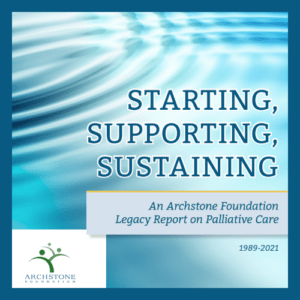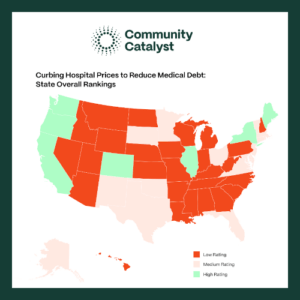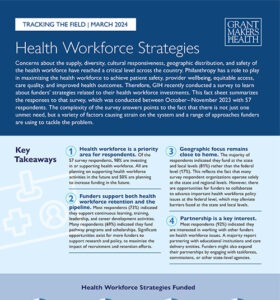Explore Access and Quality Topics
Latest Resources
Georgia Health Initiative: January 2026
The Georgia Health Initiative recently released the second annual edition of Insights on Medicaid in Georgia: Data & Trend Analyses, which provides an updated, comprehensive view of Georgia’s Medicaid program. It offers easily digestible information designed to educate and inform state decision-makers, non-profit organizations, health care providers, and other stakeholders engaged in health coverage.
Roles for Philanthropy as Medicaid Changes Take Effect
For those of us who have worked toward health equity, who have spent the past few years building toward incremental gains and pushing for larger change, the events of this year can feel like one big backslide. At times, it’s overwhelming. Yet this is not the time to get bogged down by the size of the challenge or by analysis paralysis. From where I sit, I see five roles that philanthropy can play in the rollout of changes to Medicaid.
Protecting Children’s Access to Health Care in Schools: The Impact of Medicaid Cuts on School Health Services
“Due to the remote area we serve, our students have little to no access to medical services otherthan those provided in schools.”—Superintendent from a rural school district in Michigan. Schools are essential places for children to access health services. An estimated 40 percent ofschool-aged children have at least one chronic health condition (National Survey of Children’sHealth, 2019). Among low-income children with special health careneeds, approximately 87percent do not receive necessary care, primarily due to financial costs and limited access (Childand Adolescent Health Measurement Initiative, 2022). Providing health care at school, where children spend most of their days, is crucial to addressing these concerns.
Kate B. Reynolds Charitable Trust: October 2025
Three new fact sheets inform funders about how recent federal budget cuts will impact health care access, food assistance, and the health of immigrant families. The fact sheets detail what is being cut, when the cuts will take effect, and what to do next.
Publications and Reports
2024 Survey Summary: Health Workforce Strategies
Concerns about the supply, diversity, cultural responsiveness, geographic distribution, and safety of the health workforce have reached a critical level across the country. Philanthropy has a role to play in maximizing the health workforce to achieve patient safety, provider well-being, equitable access, care quality, and improved health outcomes. Therefore, GIH recently conducted a survey to learn about funders’ strategies related to their health workforce investments.














